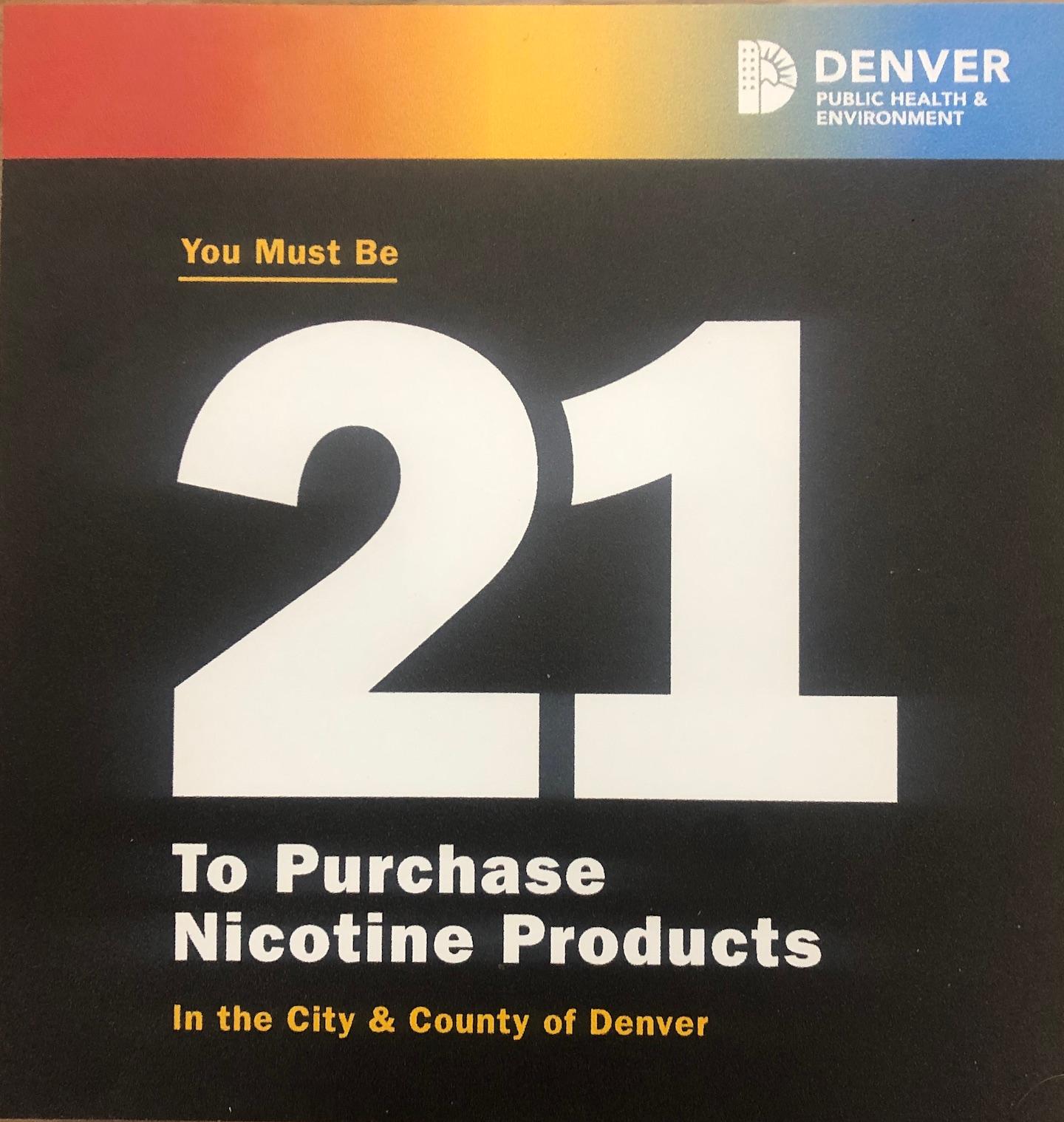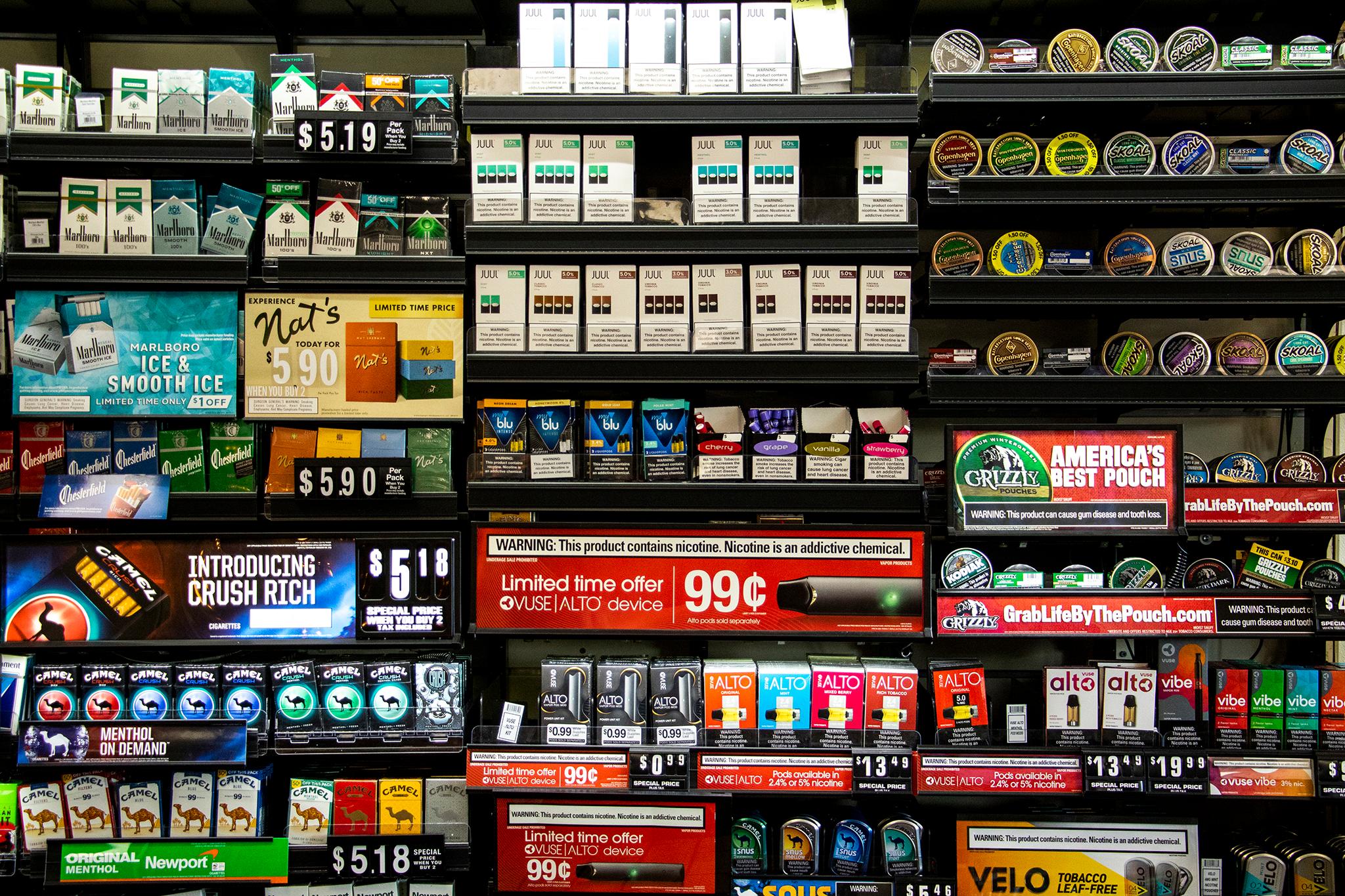Teenagers and 20-year-olds can no longer buy tobacco or vaping products in Denver, and businesses that want to sell tobacco will have to be licensed starting in 2021.
The Denver City Council voted 12 to 0 Monday to raise the purchasing age limit to 21 and start licensing retailers after the Hancock administration's health department initiated the bill to make smoking and vaping harder for young people.
A sting operation managed by the health department had underage kids attempt to buy cigarettes and electronic nicotine pods for the past two and a half years. Between 7 and 10 percent of Denver stores sold cigarettes to minors, according to the Denver Department of Public Health and Environment (DDPHE). But 27 percent sold kids vapes and e-cigarettes.
With the law, known as T-21, elected officials aim to limits kids' exposure to places that sell the products. The city will not give any new vaping and smoking licenses to stores within 1,000 feet of schools, pools or recreation centers. Current retailers will remain legitimate as long as they follow the rules and apply for a license annually.
"We have certain parts of the city where the density of retailers happens to correlate with the density of youth living in our city ... and there's a lot of research and data that suggests that not a coincidence," said Tristan Sanders, public health manager with the Denver Department of Public Health and Environment.
"Where there's more opportunity, they have more lack of compliance," he added, referring to stores that sell tobacco and nicotine to children under 18.
The original bill included a 500-foot buffer between tobacco and nicotine shops and 1,000-foot buffer for daycares. Council members voted 9 to 3 to spike both restrictions after Councilman Kevin Flynn and others said business owners would suffer.
"A number of stores for whom selling tobacco legally to customers over 21 may provide a good part of their profit margin and their revenue for the year," Flynn said. "This is a policy shift that really should have had a broader discussion."
Council members Debbie Ortega, Christopher Herndon and Chris Hinds voted to keep the stricter version.
Denver currently doesn't license or track who sells nicotine and tobacco, so it has no good way to enforce the rules, Sanders said.

Businesses will not immediately get in trouble for selling to people under 21, according to DDPHE spokeswoman Tammy Vigil. The health department will continue its sting operations, but will only hand out warnings until January. That's when the city will start citing store owners and put their ability to get a license at risk.
The health department will deliver "You Must Be 21 To Purchase Nicotine Products" signs to retailers.
Nick Finch, co-owner of Denver Vapor in Capitol Hill, said recently he and his coworkers support increasing the tobacco age to 21. Finch says he is strict about carding customers; when some young people visited his shop last Friday, a young woman was asked to retrieve her ID after saying she had forgotten it in her car.
"I'd say 80 percent of our customers (who) come in are 25 or older," Finch said. "And they use the products because it helped them quit cigarettes," Finch said.
"I would love for them to raise the age to 21," he added.
Twenty-three percent of Denver high school students reported using tobacco, while 18 percent reported vaping specifically, according to a 2018 survey by the state public health department. Around half of kids surveyed said they could easily get tobacco products, and 55 percent believe vaping and toking e-cigarettes aren't risky behaviors.
The law claims to "protect the approximately 120,700 people under twenty-one 26 years of age in the City and County of Denver from tobacco-related morbidity and mortality" by limiting access. Tobacco use kills more people early in Colorado than anything else, according to the law's language.
Reporter Esteban L. Hernandez contributed to this report.











